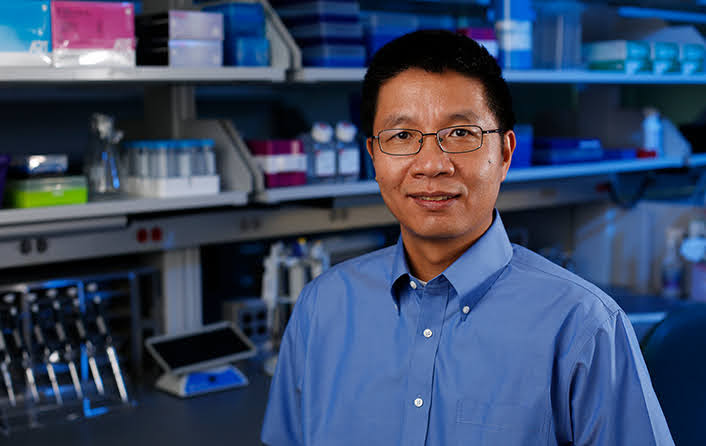Study: Arming The Immune System To Recognize Foreign Invaders

New TGen Study To Combat Pancreatic Cancer
The Seena Magowitz Foundation Releases $200,000
Toward A Total Grant of $1 Million To Fund The Study
The Translational Genomics Research Institute (TGen), an affiliate of City of Hope, has launched a new study intended to discover how to use the body’s immune system to treat patients with pancreatic cancer.
“Pancreatic cancer is notoriously known to be resistant to treatments, including resistance to immune therapies,” said Haiyong Han, Ph.D., a Professor in TGen’s Molecular Medicine Division.
Deep within the body, pancreatic cancer tumor cells create their own microenvironment that shields the cancer from being attacked and killed by the patient’s immune system, Dr. Han explained, “We are investigating new therapeutic approaches that can modulate the pancreatic tumor microenvironment and render the tumor vulnerable, or responsive, to treatment by immunotherapies.”
Proteins found on the surface of tumor cells bind to proteins on the surface of cancer-killing immune cells, including T cells. This binding creates an “immune checkpoint,” preventing the T cells from attacking the patient’s cancer.
Treatments involving antibodies that block the immune checkpoints, known as “checkpoint inhibitors,” have worked on other tumors, most notably in lung and melanoma cancers. But they have so far proven unsuccessful in pancreatic cancer.
Dr. Haiyong Han’s study will look at using immune checkpoint inhibitors, such as antibodies against PD-L1, PD-1, and CTLA-4. These antibodies can undo the immune checkpoint, thereby allowing the T cells to kill the tumor cells.
“Checkpoint inhibitors have shown dramatic activity in defeating some types of cancer. One of the main reasons for the inactivity of checkpoint inhibitors in pancreatic cancer is due to this malignancy’s unique tumor microenvironment, which is void of cancer-killing immune cells known as infiltrating lymphocytes, including T cells,” explained Dr. Han. “We are testing agents that target gene regulatory elements, known as super-enhancers, to disrupt the pancreatic tumor microenvironment, making the cancer vulnerable again to the immune system.”
“Pancreatic cancer is one of the most difficult-to-treat of all cancers, and we are pleased to contribute to the potential scientific breakthroughs being pursued by TGen,” Magowitz said.
The grant for the study were generated by an extremely successful annual golf classic organized over the past two decades by the Seena Magowitz Foundation. However, because of the COVID pandemic, the tournament had to be indefinitely postponed in 2020 and 2021. Instead, the Foundation has been raising funds to fight pancreatic cancer a series of Virtual Events.
